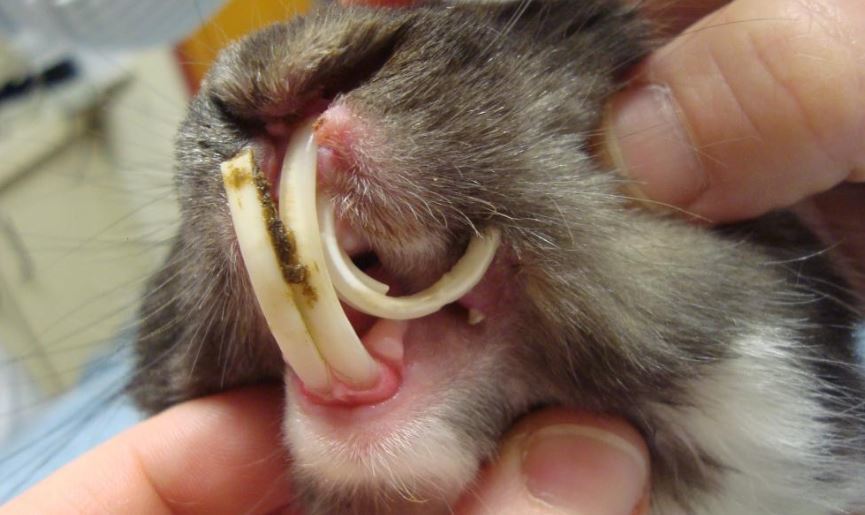Part and parcel of being a pet owner are to take care of all their needs, from their diet to their health. Individual animals have individual needs and so before you decide to bring a pet into the family, you should educate yourself about their needs so that those needs don’t go untended and also so they don’t come as a surprise to you. You need to be well prepared to take care of your pet.
Let’s talk about rabbits. Rabbit’s teeth constantly grow as they grow up and so it takes a lot of munching and gnawing for them to keep their teeth at a length that doesn’t hinder the use of their mouth. However, if for some reason your rabbit is unable to keep its teeth at the acceptable length, they will become overgrown and this dental health issue can be bothersome to you as their guardian if you don’t know how to deal with it properly.
We’re here to help you understand your rabbit’s dental health and equip you with the right knowledge to be able to deal with this condition that is a tendency to become a very serious health concern.
Everything about Rabbit’s Teeth
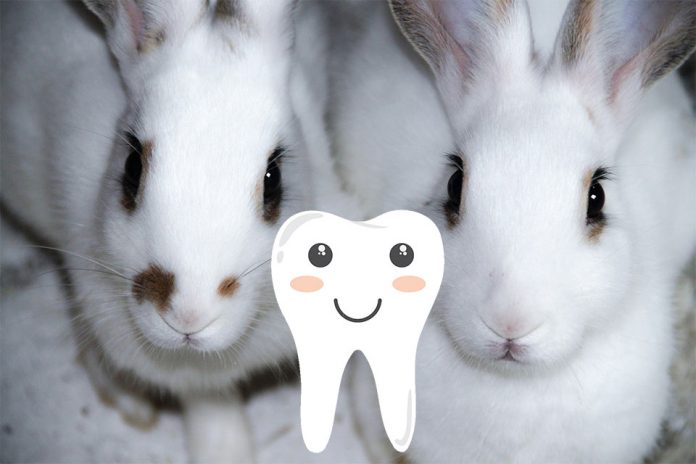
Before we get to the overgrown teeth bit, here’s some general information about your rabbit’s dental works.
Rabbits have 28 permanent teeth. It is usually the front teeth or the incisors that are most prominent and if overgrown are the easiest to spot. However, a rabbit’s molars also tend to become overgrown.
Overgrown incisors are hard to miss since they start to curve out and stick out from between your bunny’s lips. These overgrown incisors end up getting stuck on stuff such as the cars of your rabbit’s cage. Worse than it is if they grow into your rabbit’s gum or the roof of their mouth.
The molars can also grow unnecessarily long which causes your rabbit to drool in excessive amounts also known as hyper salivating and also lead to troubles in swallowing and chewing. These symptoms, as well as behavioral changes, are all indicative of dental health issues and thus should be taken seriously.
Problems caused by overgrown teeth
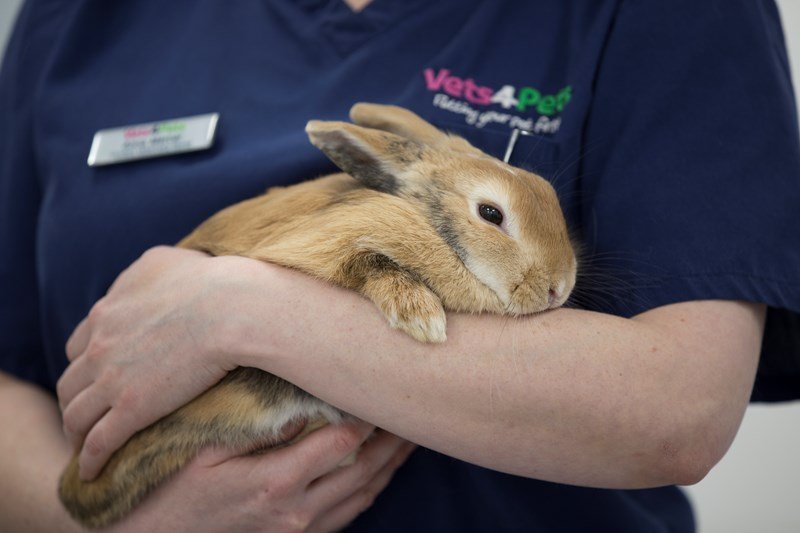
Overgrown teeth can pose a serious problem for your rabbit. They can cause serious trauma especially if they get stuck or grow into the gums. Imagine if your teeth keep hitting your lip and how uncomfortable you would be. Now imagine how your rabbits feel when their teeth are too big for their mouths!
Overgrown teeth also cause anorexia or a loss of appetite. Eating becomes too difficult and too painful for them and so they lose interest in their food. As a result, they aren’t getting the proper nourishment that they need and they lose weight and become increasingly weak and prone to other health issues.
If your rabbit is unable to chew their food and swallow for an extended duration because of their overgrown teeth, this can prove to be fatal and they can die as a result.
Treatment of overgrown teeth
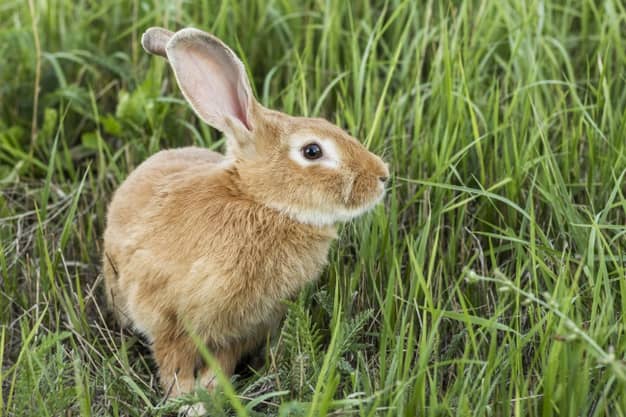
You’d be surprised to know that something that sounds like such a serious issue (which it is) can so easily be treated and prevented! The simplest way to manage this issue is to feed your rabbit the right food. Rabbits love to munch and crunch and so crunchy vegetables should be a part of their diet. You should also give you rabbit toys that they can chew on.
It is also advisable to take your rabbit to have its incisors trimmed by a vet to be on the safe side. However, also note that if the case of overgrown teeth is severe your rabbit may need to undergo surgery to correct this problem. Depending on the level of severity, the vet might even remove the overgrown teeth completely. Make sure to consult your vet on what is the best course of action to take.
Prevention of rabbit’s teeth
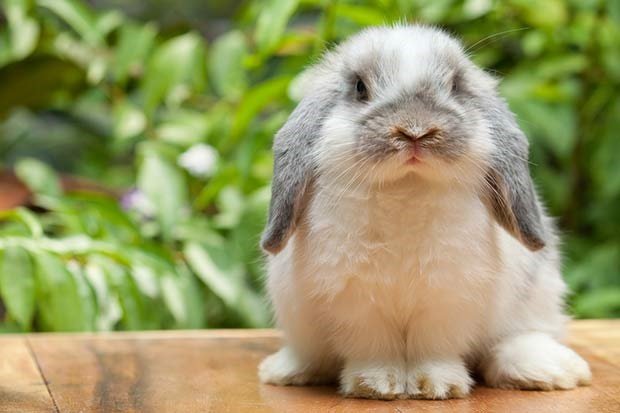
A part of the treatment for overgrown teeth is prevention. The fact that your rabbit’s teeth grow constantly is a fact of life. And while you can’t prevent the teeth from growing, you can prevent them from overgrowing.
Prevention simply requires you to follow through with these simple steps:
- Keep a check on your rabbit’s teeth. Vigilance will also help you to detect signs of overgrowth and thus quick action can be taken.
- Make sure your rabbit’s diet is fiber-rich. Fiber is great since it is the closest thing to what rabbits eat in the wild (hay, grass, and leafy veggies) and also helps wear down your rabbit’s teeth.
- If kibble is a part of your rabbit’s diet (it shouldn’t be fed alone, should be fed along with fiber food) then make sure to give your rabbit complete kibble and avoid the pellets that are low in calcium.
- Chew toys are great options for your rabbit. Smooth wood blocks are an option other than the rabbit-centric toys available in pet stores.
Overgrown Rabbit’s Molars
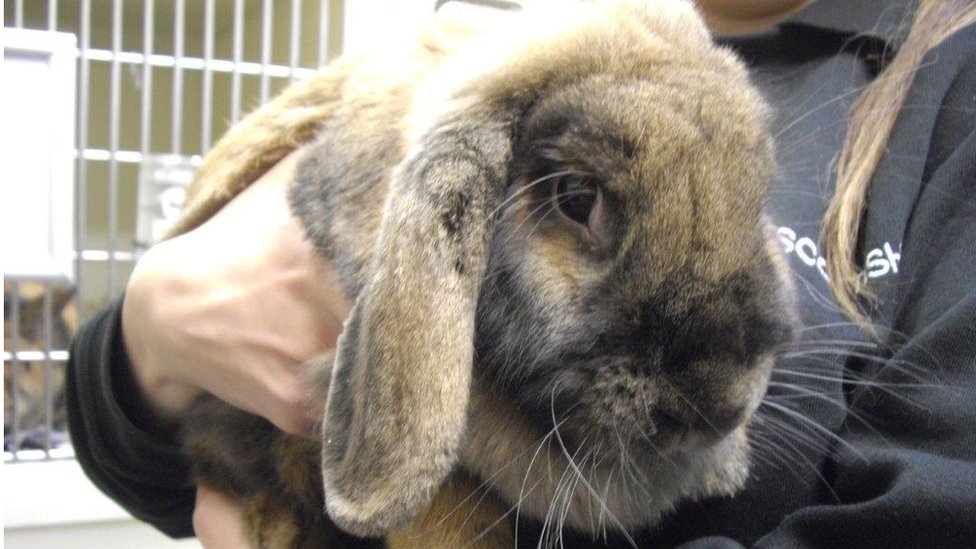
If your rabbit’s molars are overgrown, that is a more serious issue that needs to be tackled. If overgrown, they give your rabbit pain when they chew which in turn makes them stop eating to avoid the pain.
To make matters worse, trimming the molars is much more difficult a task than trimming the incisors is. And most of the time you can’t be sure of the overgrowth unless you have a vet check to make sure. Make sure to consult your vet even if you have the slightest suspicion.
If your suspicions are right, your rabbit’s molars will have to be trimmed while your rabbit is sedated. Additional x rays may be required to make sure your rabbit doesn’t need complete extraction to be carried out.
Conclusion
As your rabbit’s guardian, you bear the responsibility to take care of their health. Constant vigilance can stop a condition from turning serious. Overgrown teeth are not only painful but can be life-threatening so make sure to not let them go unnoticed.
